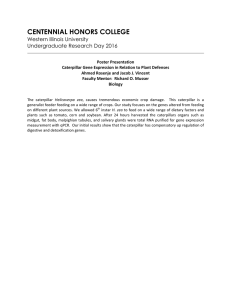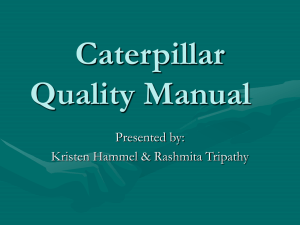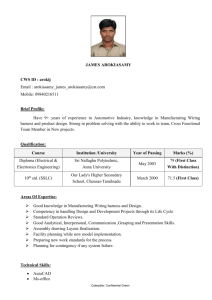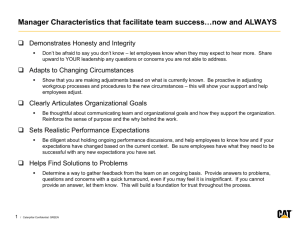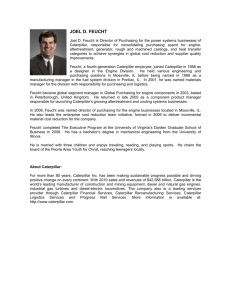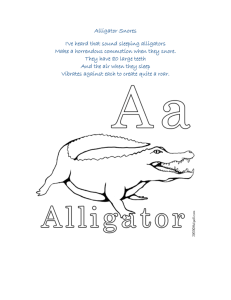Review of Global Corporate Standards Whereas, Caterpillar, a
advertisement
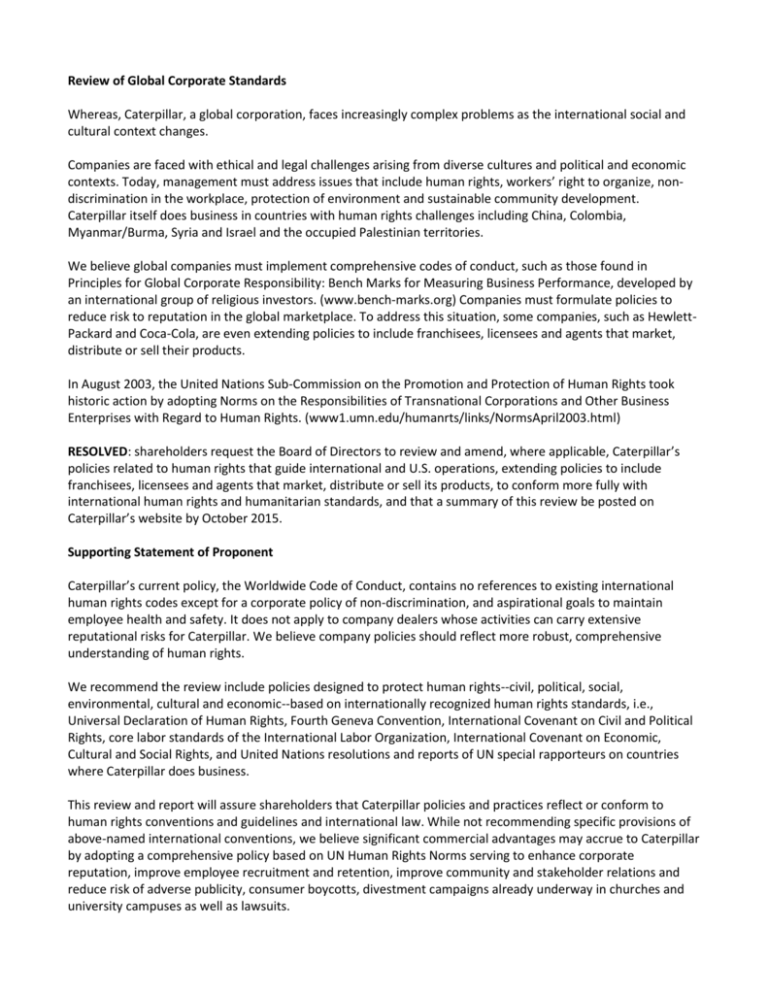
Review of Global Corporate Standards Whereas, Caterpillar, a global corporation, faces increasingly complex problems as the international social and cultural context changes. Companies are faced with ethical and legal challenges arising from diverse cultures and political and economic contexts. Today, management must address issues that include human rights, workers’ right to organize, nondiscrimination in the workplace, protection of environment and sustainable community development. Caterpillar itself does business in countries with human rights challenges including China, Colombia, Myanmar/Burma, Syria and Israel and the occupied Palestinian territories. We believe global companies must implement comprehensive codes of conduct, such as those found in Principles for Global Corporate Responsibility: Bench Marks for Measuring Business Performance, developed by an international group of religious investors. (www.bench-marks.org) Companies must formulate policies to reduce risk to reputation in the global marketplace. To address this situation, some companies, such as HewlettPackard and Coca-Cola, are even extending policies to include franchisees, licensees and agents that market, distribute or sell their products. In August 2003, the United Nations Sub-Commission on the Promotion and Protection of Human Rights took historic action by adopting Norms on the Responsibilities of Transnational Corporations and Other Business Enterprises with Regard to Human Rights. (www1.umn.edu/humanrts/links/NormsApril2003.html) RESOLVED: shareholders request the Board of Directors to review and amend, where applicable, Caterpillar’s policies related to human rights that guide international and U.S. operations, extending policies to include franchisees, licensees and agents that market, distribute or sell its products, to conform more fully with international human rights and humanitarian standards, and that a summary of this review be posted on Caterpillar’s website by October 2015. Supporting Statement of Proponent Caterpillar’s current policy, the Worldwide Code of Conduct, contains no references to existing international human rights codes except for a corporate policy of non-discrimination, and aspirational goals to maintain employee health and safety. It does not apply to company dealers whose activities can carry extensive reputational risks for Caterpillar. We believe company policies should reflect more robust, comprehensive understanding of human rights. We recommend the review include policies designed to protect human rights--civil, political, social, environmental, cultural and economic--based on internationally recognized human rights standards, i.e., Universal Declaration of Human Rights, Fourth Geneva Convention, International Covenant on Civil and Political Rights, core labor standards of the International Labor Organization, International Covenant on Economic, Cultural and Social Rights, and United Nations resolutions and reports of UN special rapporteurs on countries where Caterpillar does business. This review and report will assure shareholders that Caterpillar policies and practices reflect or conform to human rights conventions and guidelines and international law. While not recommending specific provisions of above-named international conventions, we believe significant commercial advantages may accrue to Caterpillar by adopting a comprehensive policy based on UN Human Rights Norms serving to enhance corporate reputation, improve employee recruitment and retention, improve community and stakeholder relations and reduce risk of adverse publicity, consumer boycotts, divestment campaigns already underway in churches and university campuses as well as lawsuits.
